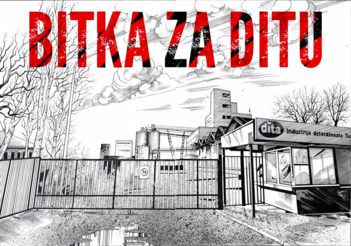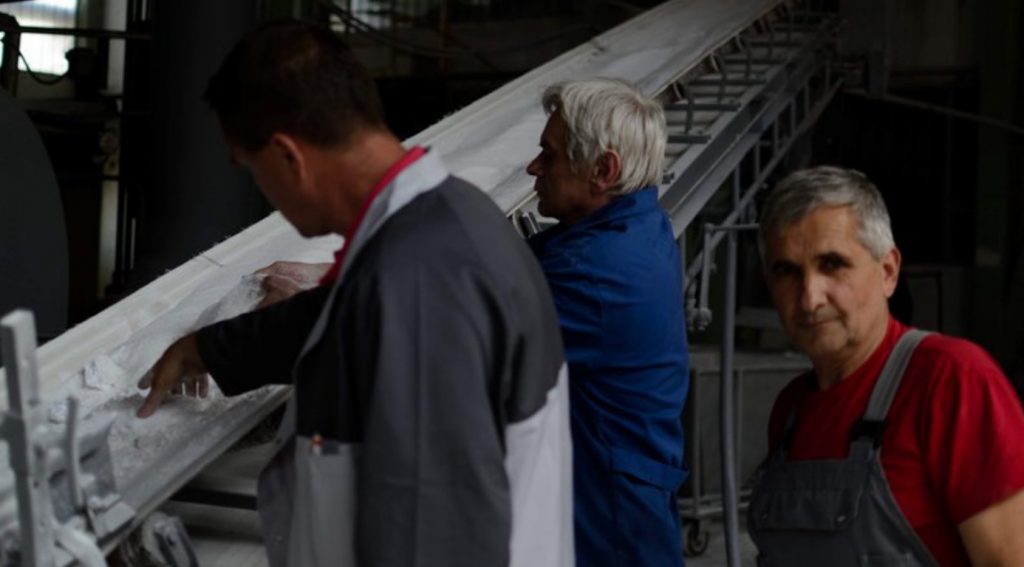Radnički univerzitet is a program platform institutionally supported by the Association “Front slobode” Tuzla, through which activists, academic citizens, educational and cultural workers, workers in the economy and the public sector, students and artists together develop tools and strategies needed to demand socio-economic justice for the impoverished and marginalized populations, and to persevere in the fight for it. Radnički univerzitet/Workers’ University was founded in solidarity with the workers of the DITA factory in 2011 and enabled the community in Tuzla to learn how to resist violent and forced robbery of common goods and social property. Since 2016, Radnički univerzitet has been operational in Tuzla and beyond (Banja Luka, Mostar, Sarajevo, Bihać…), through cooperation with similar platforms and initiatives, striving to develop and maintain solidarity and togetherness in public spaces through social reproduction that is inclusive in terms of class, gender, ethnicity/race and sexuality.
prof. dr. Jasmina Husanović

Radnički univerzitet was also created as a platform that responds to the special challenges of civil society and social activism in BiH. Since the 2000s in BiH, through their public interventions and texts, as well as through plenums and protests, activists and educators (now mostly retired people) have articulated alternatives to the dominant identity policy in the form of ethnonationalism, and warned about challenges in social justice and economic development, and the consequences for the daily lives of citizens. Discord and disconnection, as well as horizontal fragmentation and even intolerance, have contaminated civil society and civil society organizations in general, exacerbated by transgenerational trauma. This is a structural deficiency that prevents the development of successful ideas and actions strong enough to mobilize the community through education and jobs, and involving various demographic groups and populations. There are difficult lessons to be learned about the material consequences of this disintegration on the psyches and bodies of activists. After the 2014 protests, many forces were instrumentalized for the purpose of short-sighted and narrow-minded politics and interests, rather than for the long-term purposes of transformation against socio-economic injustices, which prevented wider struggles for justice, equality and development.

Radnički univerzitet aims to continue its activities in social literacy programs, in order to energize the practices of activism based on previous experience and acquired knowledge. Currently, the focus is on environmental social literacy that productively mobilizes and organizes the various forces in the community toward the common good and public interest, as well as development and growth. We believe that a development vision that includes issues of ecology and economics is inseparable from issues of policy infrastructure geared towards development and equity. Citizens should act together through a sustainable set of common goals for common goods, with a common vision and method of action, as well as a common platform of activities and interventions at the community level, through education and counseling in accordance with these goals. Given that harms related to the social good are growing exponentially, it is absolutely urgent to work on embodying new long-term egalitarian horizontal models of community collaboration, with an integrated structure and program, to build capacity to unite and mobilize those initiatives, institutions, groups and individuals who are actively involved in various forms of public protest and affirmative action, and against the plunder of natural and social resources and labor. Using past knowledge and experience to combat despair and hopelessness when it comes to future prospects for the country is crucial to both prevent the internal and external exodus of young people in BiH, and to build key bridges between past, present and future, when it is about what is valuable, saving and promising in terms of the future of Bosnian society and people.








